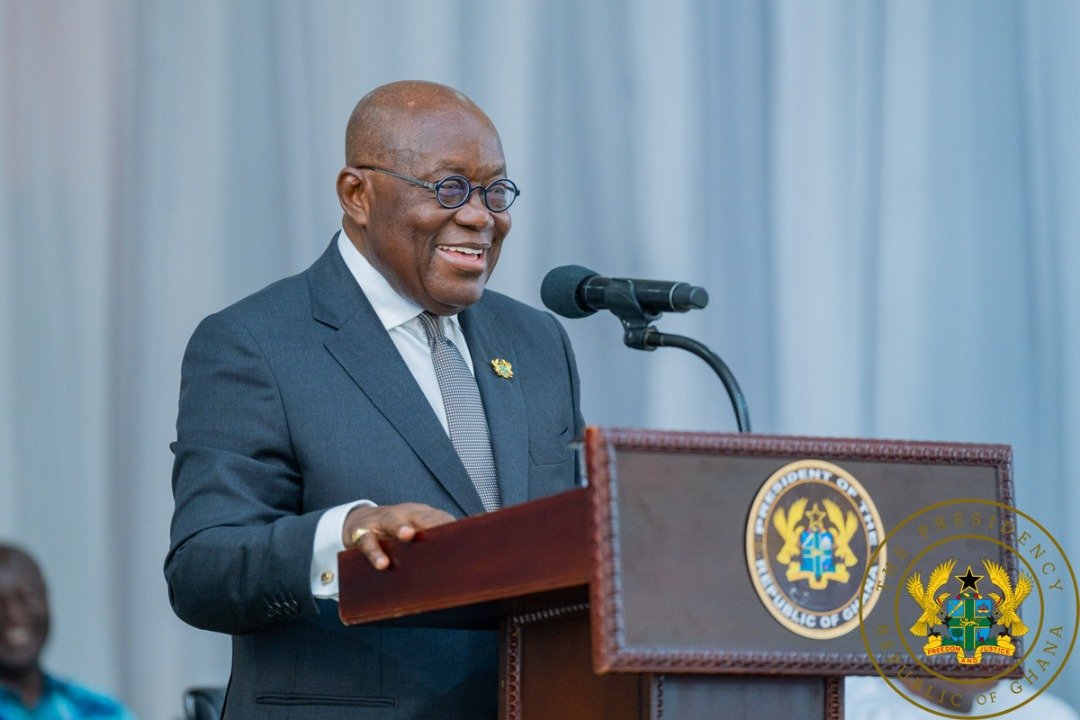
President Akufo-Addo
President Nana Addo Dankwa Akufo-Addo has called on all Muslims to continue to cultivate the virtues of tolerance, devotion and discipline during the period of Ramadan, and beyond, to help accelerate the nation’s development agenda.
In a Facebook post yesterday, the President said these virtues must stand them in good stead, even after the fast. He accordingly extended his best wishes to the Muslim faithful in Ghana and around the world, as they undertake this year’s Ramadan fasting.
Ramadan is the ninth month of the Muslim year, during which strict fasting is observed from sunrise to sunset. Muslims in Ghana commenced the Ramadan fast yesterday following the sighting of the new moon at Bawku, in the Upper East Region.
Ramadan is a period of one full month that the faithful undertake a dawn to dusk fasting, which primarily entails abstinence from food, drink, marital intimacy and any such prohibitions as instructed by Allah (God).
During the month, Muslims the world over are called upon to renew their spiritual commitment through daily fasting, prayer, and acts of charity.
Although the fasting elements are, perhaps, the most noticeable parts of observation, Ramadan is much more than abstaining from food and drink. It is a time to purify the soul, refocus attention on God, and practice self-discipline and self-sacrifice.
Chief Imam
Meanwhile, the National Chief Imam, Sheikh Usman Nuhu Sharubutu, has also called for religious tolerance and peaceful co-existence among Muslims and adherents of other religious faiths in the country.
He urged Imams and leaders of Muslim communities to caution members of their congregations against possible penetration of their ideological influences by extremist groups who are using all available means, including the social media, to extend the frontiers of their operations.
Vice-President Mahamudu Bawumia had also recently called for tolerance among the various religious groups in the country.
Quoting from the Holy Quran, Dr Bawumia stressed that all true Muslims must adhere to the teachings of Prophet Muhammed, and emulate his lifestyle.
He also reminded them that Islam, as a religion, means peace, and the Holy Prophet Muhammed had taught that a true Muslim is the one from whose tongues and hands all other peaceful people are safe and who is at peace with his neighbours.
“Allah has admonished mankind, particularly Muslims, in the Holy Quran Chapter 2 verse 12 that we should not create disorder on earth,” he stressed.
Dr Bawumia added that these beautiful teachings recorded in the Quran are “what we need as a developing nation”. He particularly noted that those of “us who call ourselves Muslims must put them into practice.”
That, he said, would signify to the rest of the world that violence is an enemy to progress, and that “our true nature as human beings is to be at peace with one another”.
Muslims and Christians
Dr Bawumia recounted how Muslims and Christians had been living in peace in Ghana, cautioning that nothing must be done to mar that relationship.
He indicated that Ghana had been an oasis of peace in the sub-region, probably among the most peaceful countries in the world today, because of the peace and tolerance that had existed between Christians and Muslims.
“This peace is anchored by the peace and tolerance that exist between Muslims and Christians in Ghana, and we should cherish one another, we should tolerate one another,” he said.
“After all, the Prophet Muhammed told us Muslims that in the areas of faith, the people that we should be closest to are Christians. That is exactly what he said. They should be our closest brothers and sisters,” he added.
He indicated that a peaceful Ghana would lead to a prosperous Ghana, adding that “violence is an enemy of progress”.
He stressed that the use of violence in settling religious differences is counter-productive and could draw back national development.





